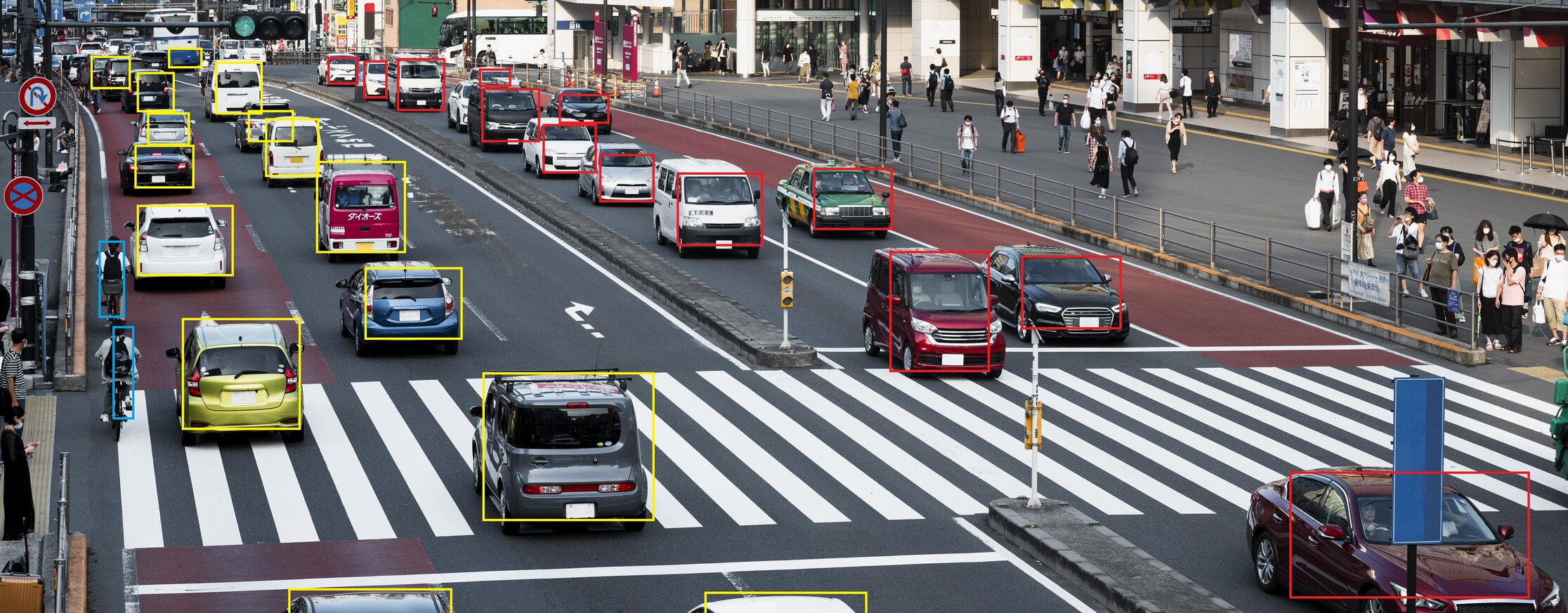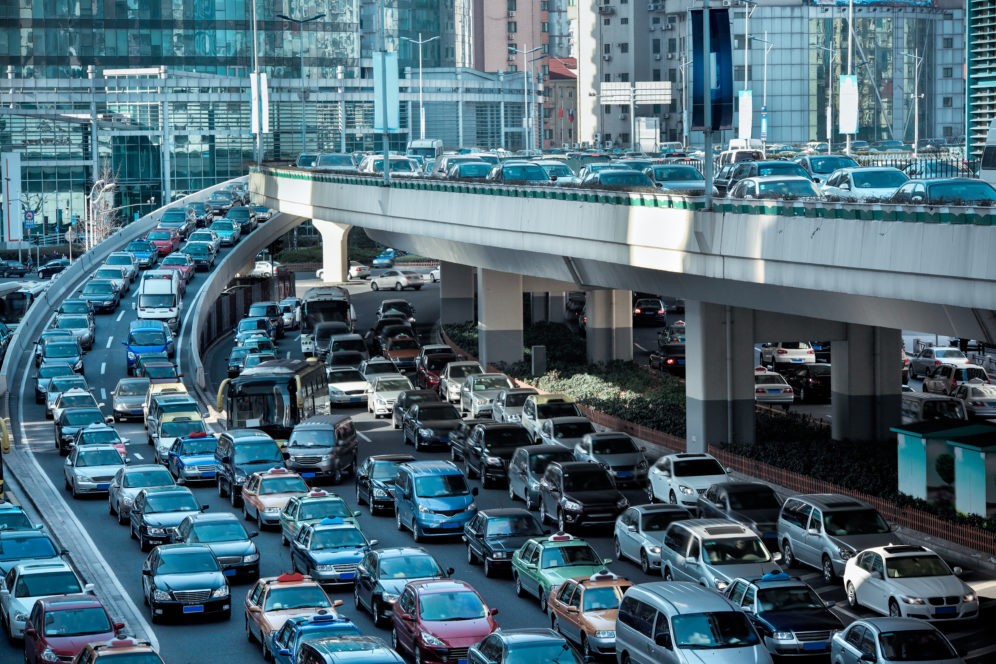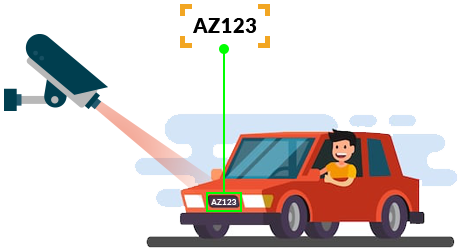Advanced Intelligent Traffic and Parking Management Systems
Stock markets might plummet and climb, companies may announce layoffs and triple the headcounts, lockdowns get imposed and lifted, but what shows a steep rise in the charts are the growth in the number of vehicles thereby leading to ever-increasing traffic. Traffic and Parking Management Systems looks like the only viable solution at hand and it is looking more and more promising by the day. In the wake of traffic control experiments like baricading, U-turn prohibition, multi-laning, flyovers and paradoxically, Odd-Even failure, it’s time we turn to advanced technology eventually. All we need is a system to manage the traffic on roads & in parking spots effectively. This can be achieved through automation that comes with Machine Learning (ML) & Artificial Intelligence (AL) algorithms.
Artificial Intelligence is the biggest innovation of computer science in this emerging era of big data. It is one of the new terms in the field of technology and has is predicted to solve so many problems. AI is making amazing progress, especially in data mining, machine learning, computer vision, natural language processing, robotics, and other related applications.
ML and AI in Traffic and Parking Management Systems
ML and AI train your systems to learn & make decisions similar to humans. AI is present in every area of our daily lives, from using social media to getting driving directions, voice control system to facial recognition lock in devices. AI is a revolutionary part of computer science, which is becoming the main component of our daily lives. It can imitate many human functions like recognition, speech, planning, learning & problem solving. The main motive of this technology is to overcome the prime barrier of Human Intelligence- Speed and Expandability. There is always a limit to the speed with which humans can perform tasks as compared to Machines. AI is overcoming this challenge by transferring Human intelligence to machines having exceptional capabilities.
AI is being developed and applied in wide range of sectors around the globe. Recently, its application has emerged in the area of transportation engineering, especially in Traffic & Parking Management systems. AI-based video analytics is converting the traditional systems transport management in to Advanced Intelligent Traffic and parking management systems.

Modern advancements in urbanization & a rising dependence on transport have lead to increase in number of vehicles on the roads, which has a negative impact on the quality of life. Increase in cars means less space on roads. This is not only a problem for roads but also for parking spaces.
Transportation issues Faced by an Average Citizen
Here are some of the challenges faced by an average citizen while driving their cars through crowded roads:
- Increase in number of vehicles results in little or no parking space
- Congestion leading to high fuel consumption & increased air pollution which is hazardous for life
- Time, energy & resource wastage
- Traffic jams resulting in increased travel-time
- Breaking traffic laws resulting in increased road accidents
- Inefficient parking skills resulting in poor space utilization
So what’s the solution?
Like every other sector, we need innovative solutions and this is where automation in traffic & parking system plays the pivotal role. AI-based smart traffic & parking system is the most innovative solutions to all the problems. AI-based solutions help in creating “Smart Cities”. AI-enabled software leveraged in the road infrastructure enables smart roads with automated transportation system.

Smart Roads
Artificial Intelligence (AI) technologies helps in designing integrated roadways based on smart systems. Smart roads help in improving road safety & reducing delays in traffic. The use of Internet of Technology (IOT) systems make driving safer, efficient & in-line with government objectives. Smart Roads are the combination of physical infrastructure like sensors & solar panels, and software infrastructure like AI & IOT. Sensors and smart cameras are embedded on roads, turning them into digital networks. Different technologies that enable smart roads are IP CCTV systems, speed sensors, smart traffic lights, and weather monitoring systems. These devices collects data automatically and analyze it in real-time. They can analyze traffic conditions and warn drivers about traffic jams, also prepare for emergency conditions like snowfall or floods, road construction and maintenance, thus reducing risk of dangerous situations in advance.
AI for Advanced Intelligent Traffic & Parking Management System Traffic Automation System
Using artificial intelligence in an open space like roads is possible by installing AI enabled smart traffic solutions within the infrastructure before launching self-driven vehicles. This system will consist of features like AI-enabled CCTV cameras that can capture drivers & commuters breaking laws, and automated number plate recognition (ANPR) cameras for generating e-challans sent electronically to violators. Intelligent traffic management system (ITMS) can facilitate a convenient, smooth & safer road experience for drivers by improving traffic management.
“Intelligent traffic management system market forecasted to reach around 18.7 billion by 2028- Report by Market Research Future (MRFR)”
Parking Automation System
AI-based smart parking system is an important part for parking management, being beneficial to both parking users & parking managers. AI-based sensors used to analyze parking vacancy help in more efficient parking management. The Intelligent parking management system works on constant real-time data collection. The system helps to make the process of car parking more efficient & less complex.
Let’s check out the most popular AI applications in transportation:
Automated Number Plate Recognition (ANPR)

The ANPR system is one the AI-based smart system solution. It uses the optical character recognition technique. The system uses ANPR cameras to scan & read vehicle number plates both during day & night. AI-based ANPR system helps both in traffic & parking management system. The AI-based parking sensor system identifies a vehicle & grants automatic access, eliminating the need of pressing button or getting a parking ticket etc. This makes vehicle entry/exit flow faster & improves parking experience. Parking managers can have easy access to parking occupants and decide who can enter & when.The ANPR system on roads helps in easy vehicle identification in case of any traffic rule violation. ANPR is used to monitor the average speed of vehicle & identify vehicle that exceed the limit.
AI-based real time data can generate real-time alerts. It can automatically challan the offenders & send e-challan electronically to the violators. The ANPR system can also help in vehicle detection in case of hit & run accident cases & also helps to spot out stolen vehicles. It is a very efficient tool for toiling systems. ANPR helps to improve the vehicle mobility & traffic safety.
“ANPR cameras have recently been installed in Vellore district border check posts to auto-detect offenders. The cameras will capture the number plates and will analyse data the system has already been trained for. The data has black-listed vehicles, that have been stolen. If a passing vehicle is found to be black-listed, the ANPR cameras will alert the police.”
Real-time parking vacancy
AI-based smart parking systems include special tools that can perform real-time count of the number of parked vehicles & empty spaces in a parking lot. There is a common problem of too many vehicles & not enough parking spaces. But the AI-based parking solutions can provide real-time data about parking occupancy & vacancy, helping parking users to find where to park. This in turn helps in solving the biggest problems like circling for an empty space and city traffic. Parking managers can analyze real-time data to optimize current parking management strategies accordingly.
“According to GlobalNeswire, a study recently conducted by the strategic consulting & market research company BlueWeave consulting revealed the global smart parking systems market was worth USD 4.5 billion in 2020 and is further projected to reach USD 17.2 billion by 2027, at a CAGR of 21,2% during the forecast period (2021-2027).”
Smart Traffic signals
Traditional traffic lights change colour depending on the predetermined rules & inductive loop sensors embedded in the road. This predetermined traffic light system itself might be correct, but the humans working behind aren’t perfect always. Mistakes occur at the back end, and sometimes drivers run a red signal and thus accidents occur. However making these lights intelligent using AI technology can maintain faster & smoother traffic flow. AI based cameras record data like number of vehicles waiting at the signal, vehicles waiting time, and vehicles speed at intersection. The collected data helps to train deep learning algorithm. The system then virtually experiments with different patterns, continuously adapting to real-time traffic conditions to minimize the wait time. AI embedded sensors on signals can also detect & identify vehicles that run a red light & send instant real-time alerts to concerned authority.
“The Gurugram Metropolitan Development Authority (GMDA) is working on a project to convert 90 traffic signals in the city to smart signals using adaptive traffic control systems to ease traffic flow in the city, as per Hindustan Times”
Traffic flow analysis
The flow of traffic impacts road safety. It somehow also impacts a country’s economy, both for the better and worse. Road congestion leads to money & time loss, causes stress to the commuters & drivers. With a better traffic flow the safety of road users can improve immensely. Artificial Intelligence is now helping for better traffic flow management using computer vision systems. With the help of computer vision, drone & real-time camera sensors based traffic flow analysis is now possible. AI solutions help in reducing congestion and eliminating choke-points that clog up the roads. The AI-based algorithms can track & count freeway traffic accurately and analyse traffic density. This helps traffic managers to understand and design more efficient traffic management systems, thus improving the road safety.
If that isn’t enough, AI sensors can even predict hazardous events, and provide real-time insights of peak hours. By using this real-time data, traffic managers can greatly reduce the traffic congestion & improve traffic flow.
Road Condition Tracking
Damaged roads & potholes is a major issue affecting the road safety. Traditionally, road condition tracking has been a manual errand to give a heads up to the traffic managers. But AI systems in transportation can detect damage successfully in real-time. AI-based computer vision algorithms can identify potholes & analyse road condition so that the relevant authorities can initiate road maintenance. AI systems will update damage in real-time with no human intervention for quick action. This will ultimately save time & money, and improve road safety thus reducing the accidents.
Final Verdict
With the revolution of AI technology, the future of Advanced Intelligent Traffic and Parking Management Systems is becoming brighter. This technology is making everyday life of citizens more comfortable & safe, and also providing real-time solutions to everyday traffic problems. With highly optimized management system AI is paving its way to build every city a Smart City.
To improve traffic & parking management & avoid congestion, smart management systems can deployed for Automated number plate recognition, Speed violation detection, Red light violation detection, Wrong way driving, Triple riding & No helmet detection, Mobile phone usage while driving, No seat belt detection, Traffic congestion detection and much more. Such AI-based video analytic solutions can leverage the existing traffic control system. Different AI-based traffic analytics can deploy over existing traffic surveillance infrastructure, with minor adjustments, developing a highly optimized structure but at a low cost.
